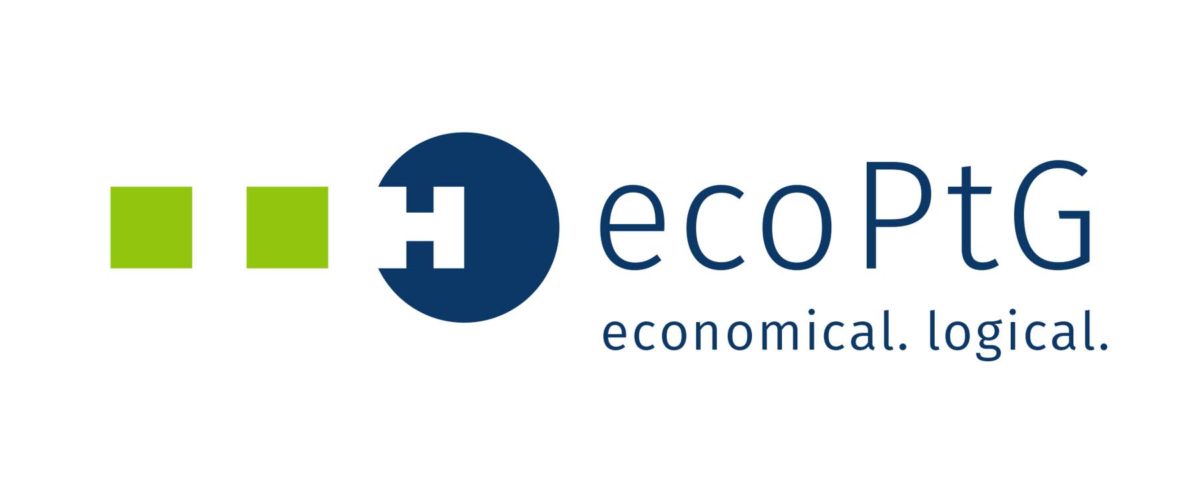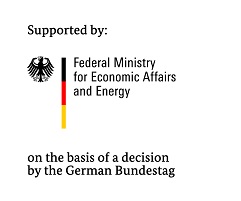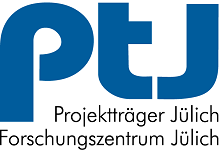Lastflussanalyse von Micro Grids unter Einfluss von erneuerbaren Energien und Elektrofahrzeugen (Göbel 2015)
10. December 2015Bestimmung optimaler Stromnetzerweiterung in ländlichen Gebieten mithilfe von Routing-Algorithmen (Geiger and Cader 2016)
1. January 2016ecoPtG

Investigating possible methods to produce a modular low-cost electrolysis system with production capabilities of approximately 100 kW using technology transfer from the automotive industry
In the ecoPtG project, it was investigated how a technology transfer from the automotive industry can contribute to the realization of a modular low-cost electrolysis system in the 100kW class.
In the course of the energy transition, electricity is increasingly generated from fluctuating sources such as sun and wind. Energy production in the renewable energy system can therefore fluctuate greatly. Thus, situations arise regionally where renewable electricity production temporarily exceeds demand. Therefore, consumption should be adapted to generation as best as possible so that few plants have to be shut down and no energy is wasted. This can be done, for example, by load shifting or using the "excess power" to generate H2.
Power-to-gas process for decarbonization of transport
One solution for using surplus electricity produced lies in the so-called power-to-gas process. In this process, electricity from solar and wind power is converted into hydrogen with the help of an electrolyzer, which can be stored without losses and over a long period of time. If required, the hydrogen can then be converted back into electricity or used as a climate-friendly fuel by fuel cell vehicles. The latter is in line with the decarbonization of transport, i.e. a switch from fossil fuels to renewable energy sources for powering vehicles.
Technology transfer for marketable 100-kilowatt alkaline electrolysis
Until now, the high investment costs of smaller electrolysers in particular have stood in the way of market introduction. This is where the ecoPtG project came in: A simple concept, simplified manufacturing processes and low-cost materials such as plastic were to make the planned 100-kilowatt alkaline electrolyzer fit for the market. To achieve this, the project drew primarily on experience from the automotive industry. The focus was on power electronics, control and sensor systems as well as process engineering components, for example for temperature control and media circuits. Many of these components had already been mass-produced for cars at low cost - and at the same time met the requirements of electrolysis. The ecoPtG project examined how exactly the technology transfer could take place.
Tank infrastructure as a possible area of application for the electrolysis system in the transport sector The ecoPtG project was able to show that the application potential for modular electrolysis systems is high in various sectors and regions worldwide. However, with regard to the transport sector, it is still unclear which vehicle concept can best be embedded in an energy system based on renewable resources and at the same time meet the requirements of the users. For H2 mobility, the development of an affordable refueling infrastructure was one of the biggest challenges until the end of the project. The ecoPtG project therefore also investigated the application potential of the modular low-cost electrolyser at filling stations as well as at off-grid locations and the potential of optimized operational control for the electrolysis system. The project's simulation models were validated with measurement data and live operation was tested.
In the course of the energy transition, electricity is increasingly generated from fluctuating sources such as sun and wind. Energy production in the renewable energy system can therefore fluctuate greatly. Thus, situations arise regionally where renewable electricity production temporarily exceeds demand. Therefore, consumption should be adapted to generation as best as possible so that few plants have to be shut down and no energy is wasted. This can be done, for example, by load shifting or using the "excess power" to generate H2.
Power-to-gas process for decarbonization of transport
One solution for using surplus electricity produced lies in the so-called power-to-gas process. In this process, electricity from solar and wind power is converted into hydrogen with the help of an electrolyzer, which can be stored without losses and over a long period of time. If required, the hydrogen can then be converted back into electricity or used as a climate-friendly fuel by fuel cell vehicles. The latter is in line with the decarbonization of transport, i.e. a switch from fossil fuels to renewable energy sources for powering vehicles.
Technology transfer for marketable 100-kilowatt alkaline electrolysis
Until now, the high investment costs of smaller electrolysers in particular have stood in the way of market introduction. This is where the ecoPtG project came in: A simple concept, simplified manufacturing processes and low-cost materials such as plastic were to make the planned 100-kilowatt alkaline electrolyzer fit for the market. To achieve this, the project drew primarily on experience from the automotive industry. The focus was on power electronics, control and sensor systems as well as process engineering components, for example for temperature control and media circuits. Many of these components had already been mass-produced for cars at low cost - and at the same time met the requirements of electrolysis. The ecoPtG project examined how exactly the technology transfer could take place.
Tank infrastructure as a possible area of application for the electrolysis system in the transport sector The ecoPtG project was able to show that the application potential for modular electrolysis systems is high in various sectors and regions worldwide. However, with regard to the transport sector, it is still unclear which vehicle concept can best be embedded in an energy system based on renewable resources and at the same time meet the requirements of the users. For H2 mobility, the development of an affordable refueling infrastructure was one of the biggest challenges until the end of the project. The ecoPtG project therefore also investigated the application potential of the modular low-cost electrolyser at filling stations as well as at off-grid locations and the potential of optimized operational control for the electrolysis system. The project's simulation models were validated with measurement data and live operation was tested.
Project period 01.11.2015 – 31.10.2018
In this project, the RLI is analyzing operation and application scenarios of the electrolysis system for hydrogen fueling stations and off-grid usage. Specific tasks include:
- Heading the “Process-, Simulation- and Market Potential Analysis” aspect of the project
- Development of a simulation model which takes into account the whole electrolysis system, covering all relevant effects:
- Determination of a suitable level of detail in order to ensure qualitative simulation results at suitable computation times
- Development of key performance indicators that facilitate an economical and technical evaluation
- Development of the best operational strategies for both stationary and dynamic operation of electrolyzers:
- Translation of the developed simulation software into a control tool that enables optimized operation of the electrolysis system that takes into account prognoses of the weather, the price of electricity, and demand
- Analysis of the application potential of electrolysis systems in the mobility sector, off-grid locations, and in industry:
- Determination of suitable locations with application potential for hydrogen
- Determination of technical requirements for the system in conjunction with environmental conditions of the locations
- Market potential analysis to determine economic viability of individual locations
Results of this project are:
- Development of a modular low-cost electrolysis system of the 100 kW class
- Electrical system should be combined with Renewable Energy systems where possible
- Application area has no relevant influence on the hydrogen production costs and is suitable for any means of transport
- Modular electrolysis systems are always cheaper than large systems over a planning period of 20 years
- Modular replication allows to react to errors in the demand development forecast
- Conception and realisation of a real-time control system for the electrical system, which optimises operation
- High application potential for modular electrolysis systems in various sectors and off-grid regions worldwide
- High cost reduction through intelligent operation strategies and the combination with local Renewable Energy, especially wind energy
Final Report












